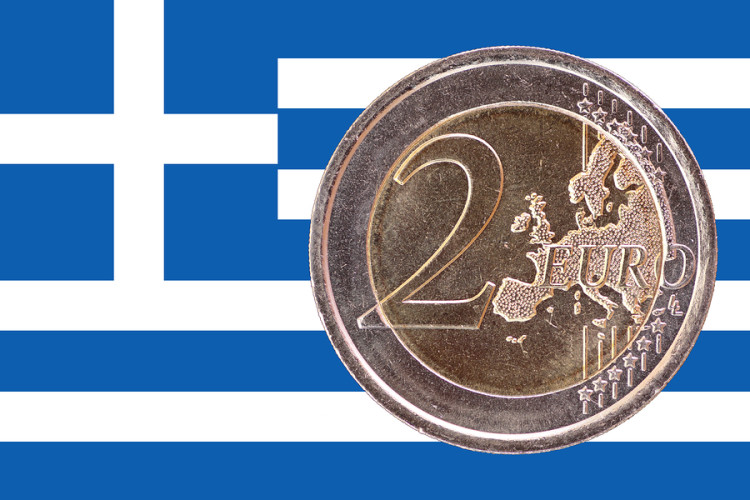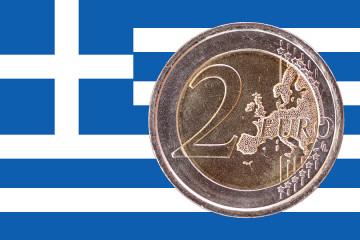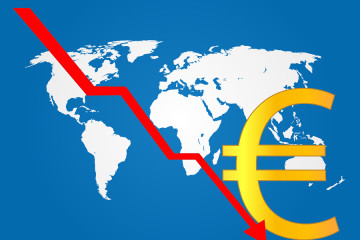Tsipras Turns Tables on Europe in Austerity Referendum Triumph

©2015 Bloomberg News
NR17VG6K50XT
(Bloomberg) — Greece voted against yielding to further austerity demanded by creditors, leaving Europe’s leaders to determine if the renegade nation can remain in the euro.
With 85 percent of votes counted, 62 percent of voters backed Prime Minister Alexis Tsipras and his Coalition of the Radical Left, or Syriza, by voting “no” to the latest proposals for spending cuts and tax increases. Thirty-eight percent voted “yes,” less than opinion polls predicted, according to results from the Interior Ministry.
The verdict turns the tables on German Chancellor Angela Merkel and her counterparts across Europe, who must decide if a financial rescue of the region’s most indebted country is still possible. It significantly raises the chances of a Greek exit from the single currency, as the country’s banks run out of cash and its economy staggers toward all-out collapse.
“The bill for keeping Greece in the euro area — without commitment to reform — has just risen disproportionately,” said Mujtaba Rahman, the head of the Europe practice at political consultancy Eurasia Group. “The hawks in the euro group will win the debate that aid should be given to the country to leave the currency bloc.”
The result will likely roil financial markets and reverberate across Europe’s political establishment. Merkel and French President Francois Hollande called for a summit of euro- area leaders on July 7 to discuss Greece.
Euro Declines
JPMorgan Chase & Co. economist Malcolm Barr said in a note to clients that a Greek departure from the euro is now the most likely scenario. The euro declined 0.9 percent to $1.1012 as of 6:20 a.m. Sydney time, paring an earlier 1.2 percent drop.
The question is whether leaders can negotiate with a government that has rejected their conditions for staying in the 19-member currency union, after forcing Portugal and Ireland to follow through on similar measures and complete bailout programs.
The European Central Bank is meeting Monday to discuss extending a new lifeline to Greek lenders, which have been closed for a week under capital controls that were imposed by Tsipras to stem withdrawals.
Restoring Dignity
Tsipras, 40, swept to power in January after campaigning to end crippling budget cuts forced upon the country by creditors and promising to restore “dignity.”
Five months of protracted and often antagonistic negotiations followed and optimism for a deal toward the end of June was suddenly dampened when he called the referendum a week ago, putting an end to talks.
European leaders largely characterized the plebiscite as a vote on membership in the euro itself, though Tsipras insists Greece can stay in regardless.
Syntagma Square in central Athens turned into a raucous street party on Sunday night as “no” supporters gathered to celebrate. Some danced to music playing from speaker phones, while others took selfies with the crowds in the background.
Crying Freedom
Waving a white-and-blue Greek flag, John Govesis, 26, said he and his whole family voted “no.” “I like freedom, I don’t need money from Europe,” he said. “This is the only way forward. I have a job, but maybe tomorrow I don’t.”
The country meanwhile is buckling under the strain of capital controls and at risk of undoing four decades of integration with Europe. Banks will struggle to re-open without significant new aid from the ECB, importers are concerned about paying their bills, and pension payments are being rationed.
Greece’s economy has shrunk about 25 percent over the past six years while its jobless rate is still the highest in the euro region.
The question on Sunday’s ballot paper left some wiggle room for negotiations, since it applied to conditions on a bailout package that ceased to exist when talks broke off.
Tsipras’s government “will make every effort to close an agreement soon” with creditors, spokesman Gabriel Sakellaridis said in televised comments.
Since Syriza came to power, the government has been trying to unlock about 7 billion euros from an existing bailout to meet debt payments. That rescue package expired on June 30, the day the country missed a payment to the International Monetary Fund — becoming the first-ever developed country to do so.
“Today’s ‘no’ is a big ‘yes’ to a democratic Europe,” Finance Minister Yanis Varoufakis said in televised comments. He said in an interview last week he expected a deal with creditors to be done however the referendum went. “It’s a ‘no’ to the vision of euro zone as an iron cage for its people.”
–With assistance from Paul Tugwell, Vassilis Karamanis, Jenny Paris, Ilya Gridneff and Eleni Chrepa in Athens and Emma O’Brien in Wellington.
To contact the reporters on this story: Nikos Chrysoloras in Athens at nchrysoloras@bloomberg.net; Marcus Bensasson in Athens at mbensasson@bloomberg.net; Matthew Campbell in Athens at mcampbell39@bloomberg.net To contact the editors responsible for this story: Heather Harris at hharris5@bloomberg.net Rodney Jefferson







No Comment